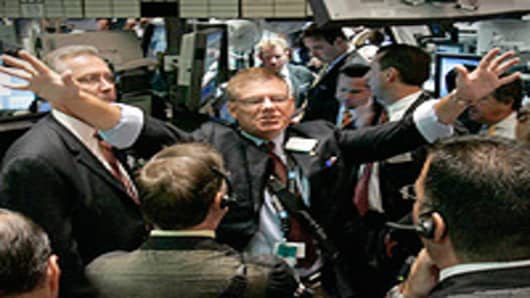Stocks could face a rough summer after the Federal Reserve ends its multi-trillion-dollar easing program in June, investment pro Byron Wien told CNBC.
Though he is sticking with an otherwise-bullish forecast for the year, Wien said the June expiration of the central bank's Treasury-buying program—often referred to as quantitative easing—likely will trigger a rough patch.
"It's hard for me to assess how much of the big move in stocks since the end of last summer was attributable to the fact that money was so plentiful and not much of it went into the real economy," the vice chairman of Blackstone Advisory Services said.
"An enormous amount went into financial assets. In June that money is going to be choked off, QE 2 is going to be over, and I don't think there is going to be a QE 3 and so therefore I think the market could be vulnerable."
In late August, 2010, Fed Chairman Ben Bernanke made remarks that signaled the central bank would kick off another leg of its QE program.
Save for a brief pullback after the tsunami in Japan, stocks have not looked back since though the actual QE 2 program, in which the Fed began buying another $600 billion in Treasurys, did not begin until November.
The cumulative effect of the Fed easing has expanded its balance sheet to nearly $3 trillion.
As such, there are doubts that it will continue to ease and risk adding to the inflationary currents already swirling through the economy with near-zero interest rates and surging consumer prices in food and energy.
"They've done as much as they can get away with," Wien said. "I just don't think they can keep on pumping money into the system."
Still, he is sticking to his full-year projection of 1,500 for the Standard & Poor's 500 , though he added that "during the summer you may have something of a swoon."
Wien said the market also needs to pay attention to the deficit debate in Washington, as the warring parties try to come up with a workable plan to get the US fiscal house in order.
He said proposals such as the current one from Wisconsin Republican Rep. Paul Ryandon't go nearly far enough.
"When you think that we're running a budget deficit of ($1.5 trillion) and we're going to cut $38 billion out of it—if you were a bellhop you wouldn't accept that as a tip," he said. "It seems to me they're not doing enough."



